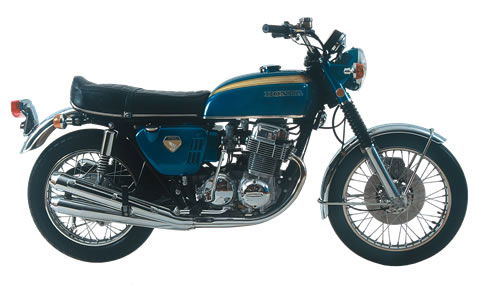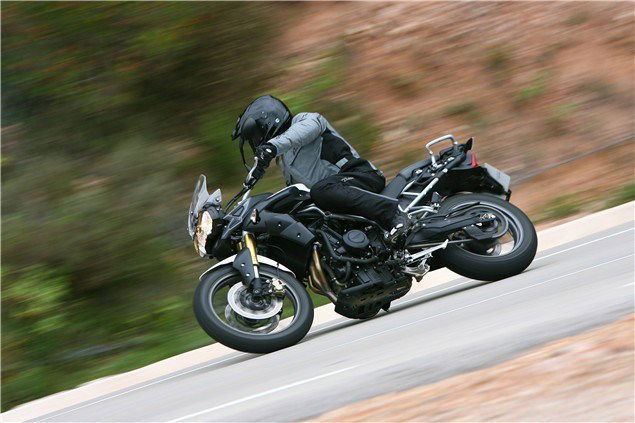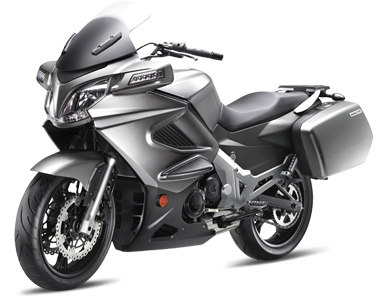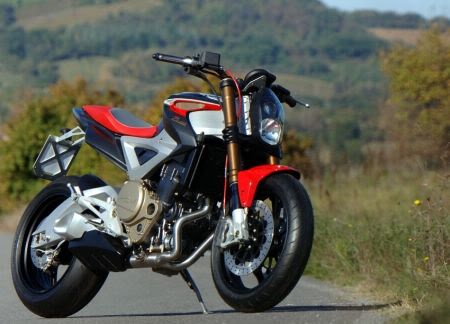Why Chinese motorcycles pose no 'threat'
It's just another country doing business

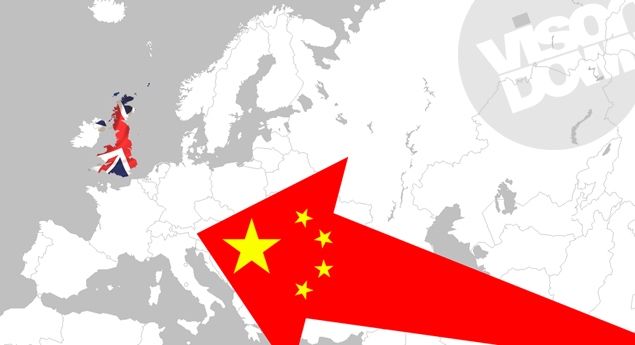
WITH the appearance of some credible-looking bikes like the CFMoto 650NK and 650TR, Loncin LX650 and the Qianjiang QJ600GS in recent months there's been growing rumbles in the bike press about the Chinese industry.
Words like 'threat' and 'invasion' are inevitably bandied about, as if Chinese bike makers are dead set on crossing borders in massed ranks, wiping out the opposition through strength in numbers and cheap price tags.
The fact is that yes, China is becoming a bigger player on the UK market, with overall numbers of Chinese-made bikes expected to surpass sales of Japanese machines in the near future (albeit mainly uber-cheap scooters, so while sales volumes are high they still account for a far smaller chunk of the overall amount of money being spent on motorcycling).
But those expecting the Chinese to come in and wipe out or seriously damage existing brands, mimicking the effect that Japanese imports had on European manufacturers in the 1960s and 1970s, have got the wrong end of the stick. History doesn't tend to repeat itself quite like that, and China's situation is very different to that of Japan fifty years ago.
Japan's export strength was a function of the country's engineering abilities, honed during WW2, and the fact that its economy was on its knees after the war. 'Export or die' might have been a British post-war saying but in Japan it carried even more truth, leading to government-controlled cooperation between companies with the simple intent of bringing more money into the Japanese economy. Firms were forced to work together, sometimes even merge, for the greater good of the Japanese economy. And the European manufacturers that Japan's bike makers hurt were generally complacent, over-confident and unwilling to change in response to their new rivals. Those that rose to the challenge survived, those that dismissed it didn't. Modern businesses, those that survived the Japanese challenge, were part of that challenge or have grown up since it, aren't likely to behave in the same way. They operate in a global market quite unlike that of the 1960s, when national pride, tax strategies and insular thinking meant buyers were far more likely to buy home-grown products than imports.
China is in a quite different economic position to 1960s Japan. Its economy is already huge – the second largest after America – and wealthy (it's the largest creditor in the world, lending money to other nations). It's also got an enormous population with fast-improving standards of living and wages. The result for Chinese bike firms is that the big money is to be made not by exporting to Europe and making large-capacity, Euro-friendly models but by concentrating on the ravenous home market. Sure, Chinese scooters are doing well in the UK, but largely as a result of western import businesses seizing opportunities to buy cheap bikes over there and flog them for peanuts over here. For the Chinese manufacturers themselves, we're small fry in comparison to the millions of potential customers they have on their own doorsteps.
Yes, now some big bikes are starting to emerge from China, but once again the target isn't a Japanese-style export boom – they're simply reflecting the growing affluence in China itself (where the likes of Ducati now also sell bikes to the growing numbers of wealthy Chinese businessmen that seem at odds with the concept of a communist country). If those bikes also appeal over here, then why not offer them to us as well?
The bikes they're turning out look increasingly decent, and in future you might well end up riding a Chinese-made bike (don't scoff, your dad probably would have done the same if you'd once suggested he'd ride a Japanese one). However, it won't be because Chinese bikes have somehow destroyed the industry elsewhere, it will be through choice. There's also a good chance it won't be a Qianjiang, Lifan or CFMoto, but something with a much more familiar name; after all, your iPod was almost certainly made in China but it's still an Apple product. Honda has factories in China, along with other established brands, while yet more already outsource production of components to Chinese firms. The fact is that China is already a world-stage player in the bike market – not a 'threat' or an 'invasion' but just another country doing business.
